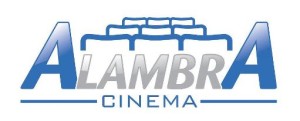Introduction
Cryptocurrency wallets play a crucial role in the security and management of digital assets. These wallets store the Luna Max Pro private keys that allow users to access and manage their cryptocurrencies. However, like any software, cryptocurrency wallets are vulnerable to security threats and bugs. One of the most common security risks associated with cryptocurrency wallets is not regularly updating the software.
Importance of Regular Updates
Regular updates are essential for the security and functionality of any software, including cryptocurrency wallets. Updates often include patches for vulnerabilities that have been discovered since the previous version was released. By not updating their wallets regularly, users leave themselves vulnerable to attacks by hackers who exploit these vulnerabilities.
Hackers are constantly searching for new vulnerabilities in popular cryptocurrency wallets to steal funds from unsuspecting users. By not updating their wallets, users are essentially leaving the door open for hackers to gain access to their funds.
In addition to security risks, not updating cryptocurrency wallet software can also lead to compatibility issues with other software or services. As the blockchain technology evolves and new features are introduced, older versions of wallet software may not be able to support these changes. This can result in users being unable to access their funds or perform transactions until they update their software.
Best Practices for Updating Crypto Wallet Software
To protect their digital assets, users should follow best practices for updating their cryptocurrency wallet software. These include:
1. Regularly checking for updates: Users should regularly check for updates to their wallet software and install them as soon as they are available. Most wallet providers release updates to address security vulnerabilities, so it is crucial to stay up-to-date.
2. Backing up private keys: Before updating their wallet software, users should always backup their private keys. This ensures that they can still access their funds in case something goes wrong during the update process.
3. Verifying the authenticity of updates: Hackers have been known to create fake updates that contain malware or phishing links. Users should always verify the authenticity of updates by downloading them from the official website or app store.
4. Using hardware wallets: For an added layer of security, users can consider using hardware wallets to store their cryptocurrencies. Hardware wallets are physical devices that store private keys offline, making them less vulnerable to hacking attacks.
Conclusion
In conclusion, not regularly updating cryptocurrency wallet software can pose serious security risks to users’ digital assets. Hackers are constantly looking for vulnerabilities to exploit, and outdated wallet software provides them with an easy target. By following best practices for updating wallet software, users can protect their funds and ensure the security of their digital assets. It is essential for users to stay informed about the latest updates and take proactive steps to secure their cryptocurrency wallets.

